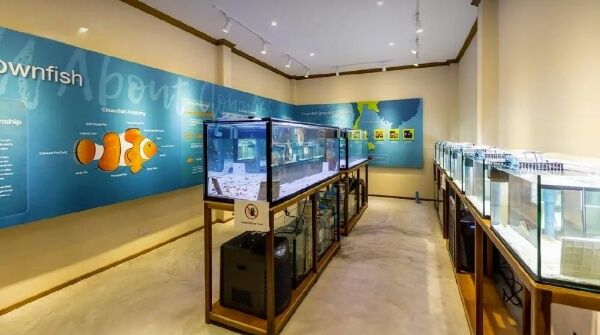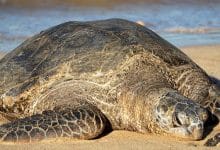How conservation efforts saved the ecosystem at Maya Bay

In 2016, Maya Bay welcomed a staggering 1.73 million visitors, but its popularity devastated its delicate ecosystem.
Fast forward to 2024, and the once-threatened bay stands as a testament to the power of environmental stewardship.
Dr Thon Thamrongnawasawat, a leading marine biologist explains that the target point for Maya Bay was to set up a system that would help us, and would become a permanent system that would still allow tourists to enjoy Maya Bay.
Before the closure, Maya Bay was besieged by over 100 long-tailed boats daily, wreaking havoc on its coral reefs and marine life.
“Before the closure, there were no sharks. Today, there are about 60 sharks in the Maya Bay area.”
Thanks to stringent regulations, only 300 visitors per hour are now permitted, with protective measures such as piers and boardwalks implemented to minimise ecological impact. The results speak volumes: coral coverage has increased from a mere 8% to 20 to 30% by 2023.
However, the challenges persist. The global craze sparked by Finding Nemo compounded existing threats to species like clownfish. In response, initiatives such as the clownfish and shark restoration project have made strides, yet conservation remains an ongoing battle.
Enter SAii Resorts, spearheading efforts to preserve marine biodiversity. Collaborating with government bodies and local NGOs, initiatives like the Save Our Sharks programme have seen tangible results, with 30 sharks released and 29 eggs nurtured, reported The Nation.
The success story doesn’t end here. The Marine Development Centre at Saii Village Phi Phi Island represents a beacon of hope for the future, aiming to increase biodiversity by 30% by 2030.
Concerns over the Maya Bay’s sustainability prompted the Thai Department of National Parks, Wildlife, and Plant Conservation (DNP) to shutter its shores in 2018 for environmental rehabilitation. After a painstaking two-year closure, Maya Bay cautiously reopened in 2022, albeit with stringent regulations.
In related news, the world’s forests have undergone a drastic reduction of nearly 20 million square kilometres over the past 30 years, plunging from 42.03 million square kilometres in 1992 to 40.44 million square kilometres in 2021, as per the latest data from the World Bank.
Latest Thailand News
Follow The Thaiger on Google News:


























